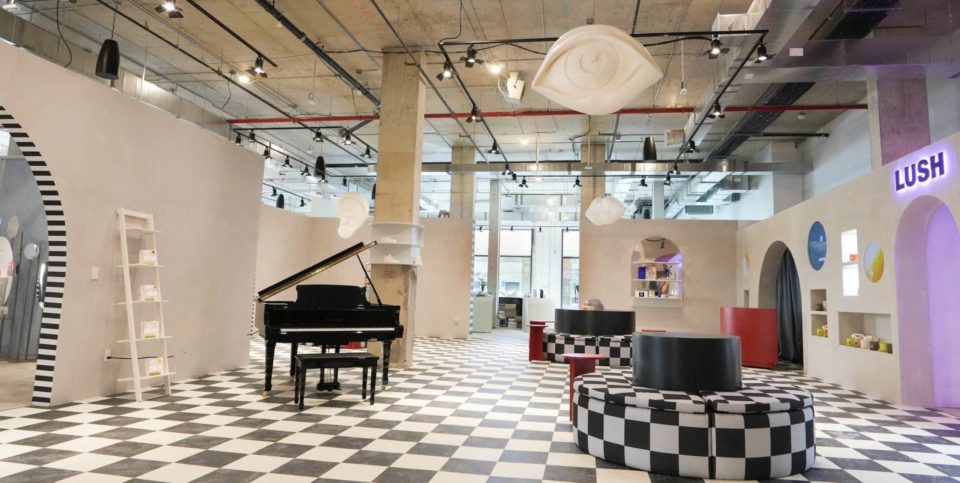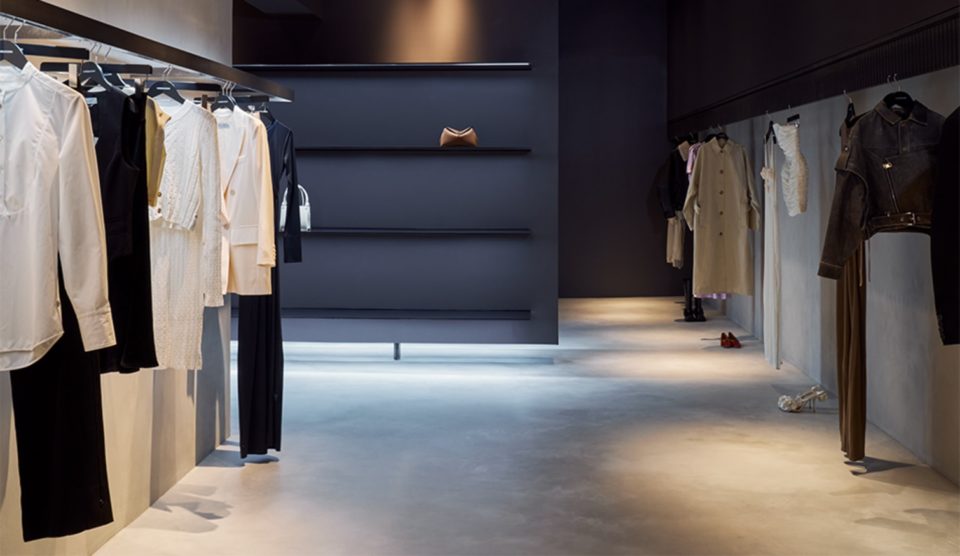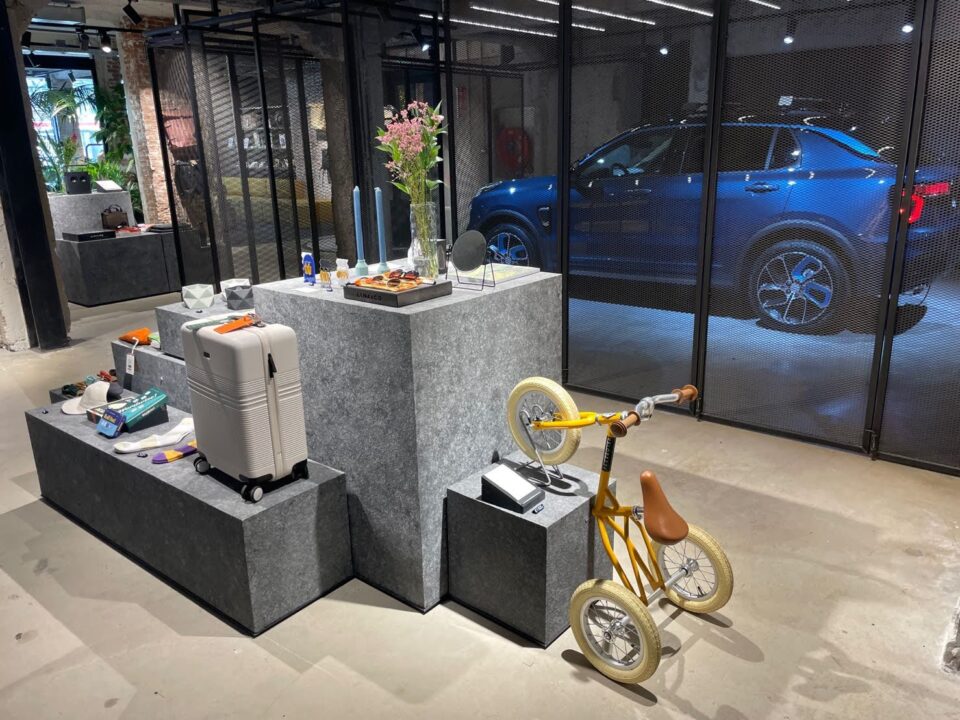Can the five foundations of productivity transform your retail staff?

‘It’s all about your people.’
This is the guiding philosophy of Graff Retail, a multi-award winning retail training programme company. But it should be the way all retailers approach training their staff.
Graff Retail’s training programmes focus on the human being first which translates to better results. The company helps retailers to put in place five foundations for amazing productivity that can apply to any sector or business model.
We spoke to founder Kevin Graff about just what the five foundations are, how much you can actually teach about selling, and what retailers aren’t doing when it comes to their staff.
Kevin Graff, Founder, Graff Retail
How would you describe what you do?
We’re a training and development company that’s focused on the retail sector.
We work with retailers to develop and implement customised sales training programmes for their frontline staff and management training programmes for their store managers, so they can figure out how to get the best productivity out of their sales teams. We also develop and implement programmes for their territory managers.
We deliver in-person classroom training and workshops, as well as online and mobile training. The reason our programs work is we go out and learn about the company and what their strategies, values and objectives are and we spend a lot of time talking to the staff on the frontline. Then we shape the programme to fit them. That’s where you get the results. Otherwise, it’s a cookie cutter programme that you could just get off the shelf. And that just doesn’t work.

Can you tell us more about your training programmes?
If we look at store managers, for example, and compare the training that they normally get from their companies versus where their biggest stress is in their job, there’s a gap.
Every retailer out there provides all the standard operating practices and systems to their managers. The better ones spend time doing leadership training and coaching to give their managers the skills that they need. But there’s still the majority out there where those training cupboards are fundamentally empty.
Their biggest stress isn’t ordering product, receiving it, filling out the schedule and doing the paperwork. Their biggest stress is dealing with their staff, finding staff, keeping staff, getting staff to execute the programmes the way they’re supposed to do them, getting staff to get along, dealing with performance problems, and keeping staff motivated and engaged. That’s the toughest part of the job for every store manager.
Our programmes focus on this. How do you run better interviews? How do you get your staff turnover rates down so you can focus on building your business? How do you manage your priorities? How do you make sure that you and your team get that stuff done? How do you deal with performance problems? How do you have those tough conversations? How do you build structures for motivating and engaging your team?

How much can you actually teach staff about selling?
I think this is where the best retailers are getting to now.
If you’re interviewing two people and one is a great salesperson, but really doesn’t know your brand, and the other doesn’t know much about selling but they love and live the brand, you’re going to hire the second.
You can teach them how to sell. The other stuff is becoming the defining difference.
Sales training in some respects varies from client to client because the environments are a little bit different, but there are some fundamental truths at the core of all sales. The sale isn’t so much about the product, it’s how you’re interacting with the other individual.
It’s about building true connection with your client and then being able to present your product as a solution based on their needs rather than a product. You need to communicate how it adds value to the customer.
One of the fundamental changes that we see happening in full-serve or semi-assist retail environments is that you may end up with fewer staff in the stores in front-facing roles, but the people you do have are going to be really great ambassadors.
They’re going to be people who can talk to your customers at a much higher level about who you are, what your values are, what your product is and how it works. I think that’s probably where we’re headed.
For staff, it’s a good thing because they’ll be paid more. For consumers, it’s an amazing thing because the experience is going to be better.
Meanwhile, self-serve environments, such as grocery stores, are not selling environments.
In those environments we primarily focus on the management team because if they are better at their jobs, they can create a better work experience for the staff and that improves performance – whether it’s a customer facing role or not.
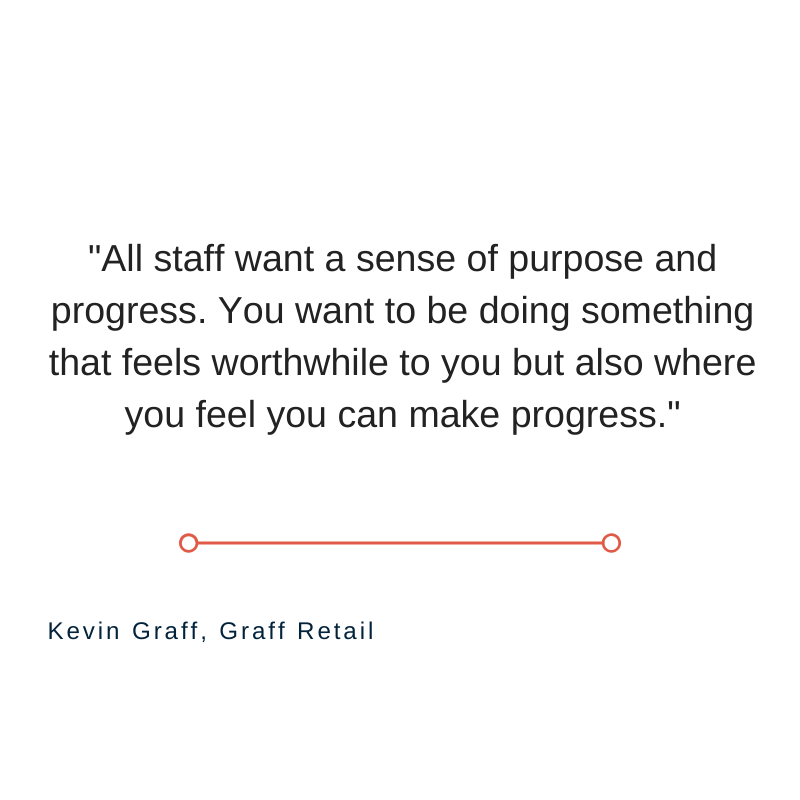
Why do you design your programmes the way you do?
There’s a reason we design our programmes the way we do with lots of focus on reinforcement of the skills taught.
We know most people forget almost everything they learn after 24 hours; after a full week, it’s almost all gone unless you reinforce it.
Organisations that have a strong coaching culture see a 21% improvement in results.
If you’re a really good coach to your employees, they’re going to be motivated, they’re going to be engaged, they’re going to be better skilled.
For example, one of our clients is a large liquor chain and we increased their sales by 10% just by training their staff.
Another project saw us build out a proper onboarding and hiring process for a client, as well as management and sales training, and as a result staff turnover rates fell by 40%.
Clients always want more sales, and we deliver that. But reducing staff turnover rates means you can focus on improving your business rather than spending time and money in a cycle of hiring.
All staff want a sense of purpose and progress. You want to be doing something that feels worthwhile to you but also where you feel you can make progress.
If you’re making progress, but it’s on something that’s not very important to you then what’s the point? And conversely, if you’re working on something that’s really important to you, but you’re not making any progress then that’s not sustainable.
I think it’s an evolutionary thing where retailers are realising they need staff to perform at a higher level. For a long time, retailers didn’t really expect that much out of their frontline staff. But that’s changing.
If you take a brick-and-mortar store, what’s the one thing that most significantly differentiates you from the other stores down the street? Product is product. Prices are prices. Nice store design is a given.
The greatest variance in performance from one store to the next is staff performance. That’s what makes it memorable.
What are some of the best examples of customer experience that you’ve seen?
We work with a liquor retailer in Canada called Jak’s. They created a great company culture where the manager sees his job as helping staff to achieve their dreams.
I was doing a session with them where one staff member began to cry because she got more fulfillment and engagement at work than she’s ever felt at home. That’s pretty powerful, right?
But it doesn’t just happen. It’s leadership and helping staff become successful because if they’re successful they’ll make your business successful.

Can you tell me about the five foundations of productivity?
The theory behind the five foundations is that if you get all five of these things in place and operating at a really high level, you’ll get amazing productivity. Conversely, any inefficiency in any of them means you’re going to get lower productivity levels, which in the world of retail normally mean sales.
The first foundation is that people have to focus on goals. Everybody has to know what’s expected of them and be constantly focused on trying to achieve those goals.
The second foundation is to share results constantly. You have to give people updates as to where they are in achieving those goals.
The third foundation is accountability for success. This is about getting people to take responsibility for achieving their goals and to operate with a higher sense of pride.
The fourth foundation is ongoing training and coaching. This is giving people the coaching, the skills and the support that they need to actually achieve that goal.
The fifth foundation is making it worthwhile. How is it that I’m going to engage you? How will I get your commitment to this? How will I help you celebrate your success in doing this?
It’s not a retail thing, it’s a human thing.
If you wanted to make the Olympic team for the 100m sprint you know you have to get your running time under a certain number. That’s your goal. And every time you go to training and are running down the track you have someone timing you so you can see your results.
You have massive accountability as you either hit that number or you don’t make the team. You go through ongoing training and you get the best coaching you can find in order to try and reach your goal. And you do it because you find it intrinsically worthwhile.
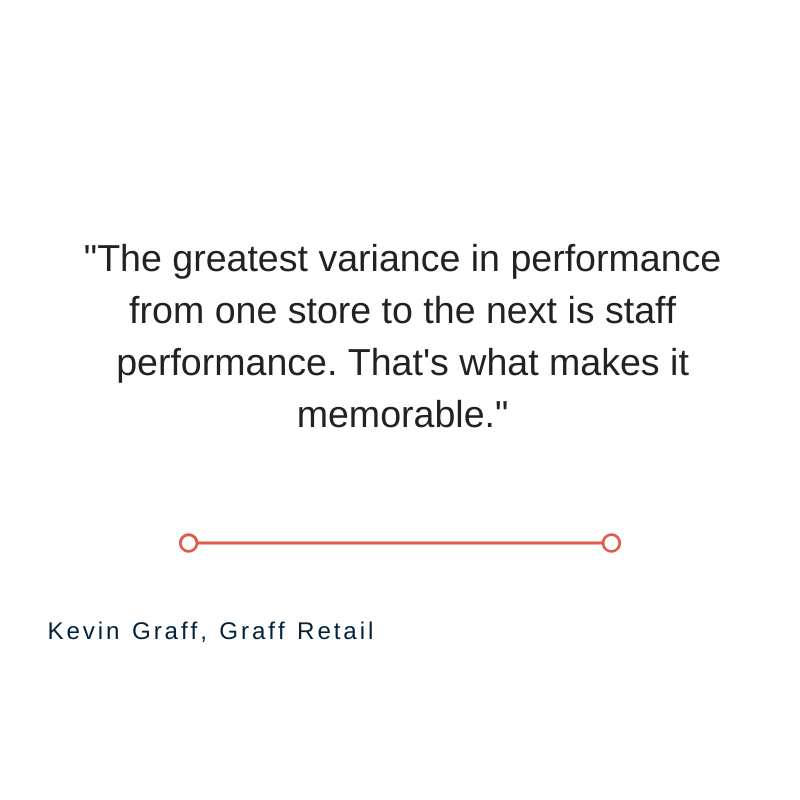
Are there things that you often find that retailers aren’t doing when it comes to their staff?
You really need to get people to buy into your why?
Everybody tells people what it is they need you to do. But if you’re really going to get people to engage you need to explain why you’re doing this? Why is this important? How does this link back to our values as an organisation? Are your values as an individual aligned with ours as an organisation?
For many organisations, values go on a coffee mug, and nobody ever thinks about them ever again. But it’s about always bringing people back to that purpose.
Often what you find is that when you take that approach you get rid of a lot of the resistance and objections about people not wanting to do it because it makes sense to them.
Change your approach with a customised training programme of your own. Get in touch with Graff Retail to discuss your needs.

